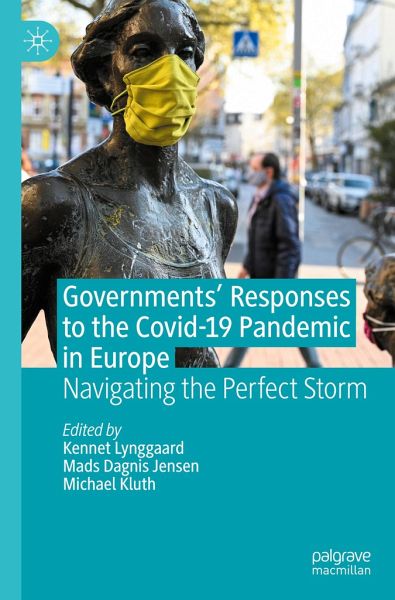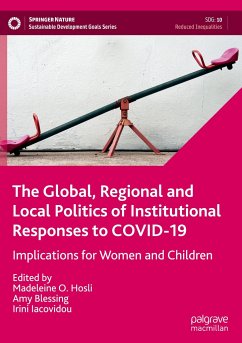
Governments' Responses to the Covid-19 Pandemic in Europe
Navigating the Perfect Storm
Herausgegeben: Lynggaard, Kennet; Jensen, Mads Dagnis; Kluth, Michael
Versandkostenfrei!
Versandfertig in 6-10 Tagen
113,99 €
inkl. MwSt.

PAYBACK Punkte
57 °P sammeln!
This book examines similarities and differences in 31 European governments' responses to the COVID-19 pandemic. The COVID-19 pandemic hit Europe in early 2020. It spread across the continent during the Spring while anxious electorates were treated to news reports about health systems under duress and frustrated attempts by public procurement officials to obtain adequate supplies of medical and protective equipment. Over the next 15-18 months considered by this book, national responses exhibited both similarities and profound variations as the different endeavours to regulate social interaction...
This book examines similarities and differences in 31 European governments' responses to the COVID-19 pandemic. The COVID-19 pandemic hit Europe in early 2020. It spread across the continent during the Spring while anxious electorates were treated to news reports about health systems under duress and frustrated attempts by public procurement officials to obtain adequate supplies of medical and protective equipment. Over the next 15-18 months considered by this book, national responses exhibited both similarities and profound variations as the different endeavours to regulate social interactions constituted a stress test for political systems across Europe.












